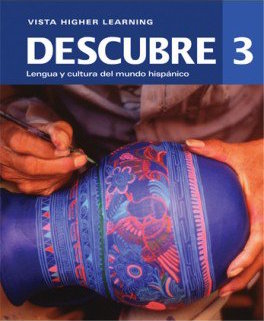
All Solutions
Page 101: Comunicacion
1. being afraid of monsters
2. crying all the time
3. always making their bed
4. being very mischievous
5. breaking their toys
6. giving many gifts to their parents
7. eating a lot of candy
8. believing in ghosts
1. *¿Tenías miedo de los monstruos?*
Were you afraid of monsters?
2. *¿Llorabas todo el tiempo?*
Did you cry all the time?
3. *¿Siempre hacías tu cama?*
Did you always make your bed?
4. *¿Eras muy travieso?*
Were you very mischievous?
5. *¿Rompías tus juguetes?*
Did you break your toys?
6. *¿Le dabas muchos regalos a tus padres?*
Did you give many gifts to your parents?
7. *¿Comías muchos dulces?*
Did you eat a lot of candy?
8. *¿Creías en fantasmas?*
Did you believe in ghosts?
1. *Antes, Andrés usaba anteojos grandes y gruesos. Ahora usa anteojos más pequeños.*
Before, Andrés used to wear big, thick glasses. Now he wears smaller glasses.
2. *Antes, Andrés no tenía auto. Ahora tiene un auto moderno.*
Before, Andrés didn’t have a car. Now he has a modern car.
3. *Antes, Andrés no tenía trabajo. Ahora es rico.*
Before, Andrés didn’t have a job. Now he’s rich.
4. *Antes, Andrés no se peinaba. Ahora se peina todos los días.*
Before, Andrés didn’t brush his hair. Now he does it every day.
5. *Antes, Andrés usaba ropa de su abuelo. Ahora se viste con ropa nueva.*
Before, Andrés wore his grandfather’s clothes. Now, he wears new clothes.
6. *Antes, a Andrés le gustaba leer. Ahora le gusta conducir su auto.*
Before, Andrés liked to read. Now, he likes to drive his car.
*Cuando mi abuela era niña, eran los años 1960. Ella caminaba a la escuela todos los días, usaba un uniforme y leía un diccionario. Cuando salía de la escuela, ella jugaba con sus amigos en el parque, y luego volvía a su casa. Para divertirse, aprendía sobre plantas y flores en el patio de su casa. No tenían internet ni videojuegos.*
When my grandmother was a child, it was the 1960s. She walked to school every day, wore a uniform and read a dictionary. When she got out of school, she played with her friends in the park, and then returned home. For fun, she learned about plants and flowers in the backyard of her house. They didn’t have the internet or videogames.
* *¿Qué hacía tu abuela para divertirse cuando era niña?*
What did your grandmother do for fun when she was a child?
*Cuando ella era niña, jugaba con sus amigos en el parque.*
When she was a child, she played with her friends in the park.
* *¿Los niños de hoy juegan en el parque con sus amigos?*
Do children today play in the park with their friends?
*Sí, los niños de hoy también juegan en el parque, pero a otras cosas.*
Yes, children today also play in the park, but they play other games.
* *¿Cómo era la vida diaria hace veinte años?*
What was daily life like twenty years ago?
*Hace veinte años, la gente no tenía teléfonos celulares para comunicarse. La gente comenzaba a enviarse e-mails.*
Twenty years ago, people didn’t have cell phones to communicate. People were starting to send e-mails.
* *¿Cómo era mejor la vida diaria entonces?*
How was daily life better then?
*La vida diaria era mejor porque no veíamos tantas publicidades y no había tanta contaminación.*
Daily life was better because we didn’t see as many ads and there wasn’t as much pollution.
* *¿Cómo era mejor la vida diaria hace cincuenta años?*
How was daily life better fifty years ago?
*Hace cincuenta años, la vida diaria era mejor porque había menos autos en la calle, y la gente podía caminar más tranquila.*
Fifty years ago, daily life was better because there were less cars on the street, and people could walk more calmly.
* *¿Y cómo era peor?*
And how was it worse?
*Era peor porque no teníamos Internet para informarnos sobre las cosas.*
It was worse because we didn’t have the Internet to inform ourselves about things.
* *¿Cómo era la vida hace dos siglos?*
What was life like two centuries ago?
*Hace dos siglos, la sociedad era diferente. La gente sólo trabajaba en fábricas y había muchas más enfermedades. Era mejor porque no había tanta contaminación, pero era peor porque la gente trabajaba muchas más horas y no tenía tantos derechos.*
Two centuries ago, society was different. People only worked in factories and there were many more illnesses. It was better because there wasn’t as much pollution, but it was worse because people worked many more hours and didn’t have as many rights.

